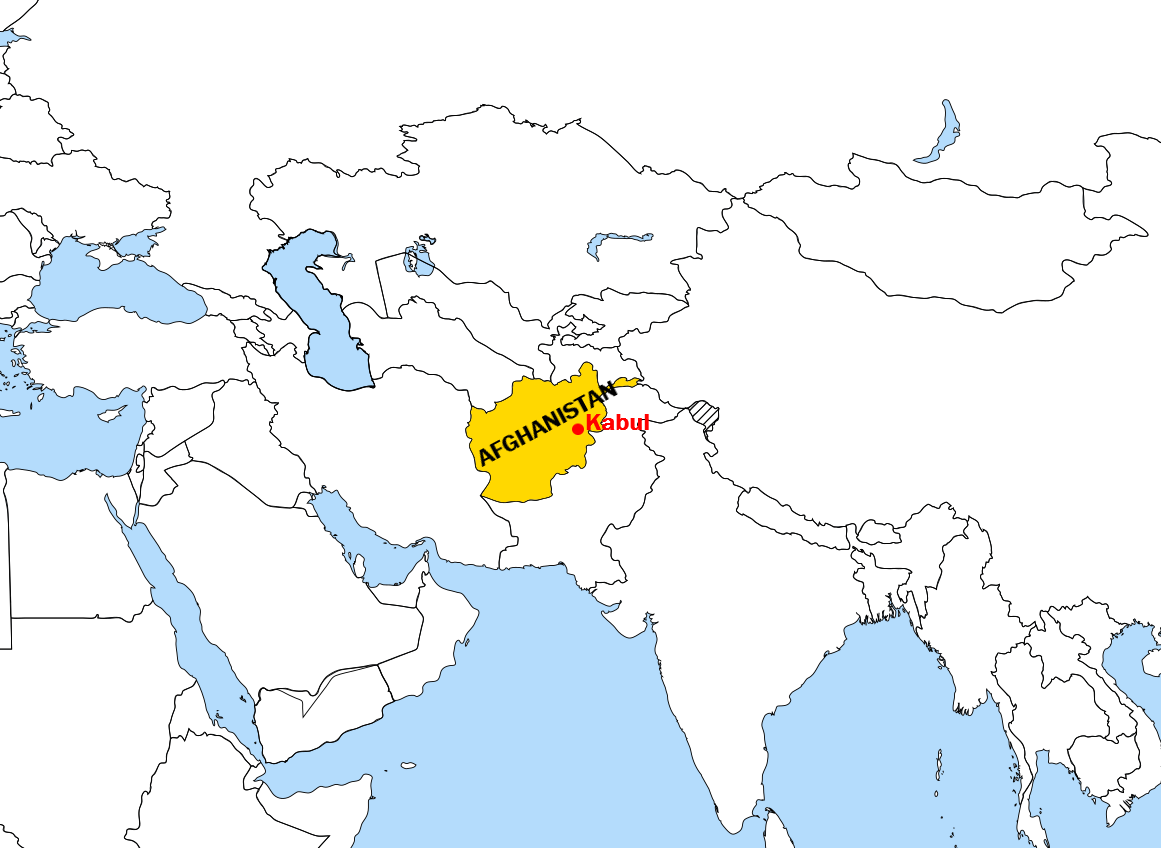|
Sher Khan Nasher
Sher Khan Nashir (also: Nasher) was the hereditary Grand Khan (Loy Khan) of the Nashir clan of the Kharoti (Ghilji) tribe and governor (Wali) of Northern Afghanistan in the 1930s, known as the "father of Kunduz. He was apparently poisoned by the King of Afghanistan. Many places, schools and Afghanistan's largest port Sher Khan Bandar are named after him. Life Born as the son of the Khan of the Nasher clan of Ghilji Kharoti Pashtuns, he left Ghazni in the early 20th century as the Nasher family was exiled by the ruling Durrani King Amir Abdur Rahman Khan in order to weaken his nemesis. Sher Khan launched an industrialization campaign with major urban development and construction programmes of what then became Kunduz. He is also known as the founder of the Spinzar Cotton Company in Afghanistan, and implemented Qizel Qala harbour that was later named Sher Khan Bandar. In addition, several schools in Afghanistan are named after him. There are rumours he was killed by the leading ... [...More Info...] [...Related Items...] OR: [Wikipedia] [Google] [Baidu] |
Pashtun People
Pashtuns (, , ; ;), also known as Pakhtuns, or Pathans, are an Iranic ethnic group primarily residing in southern and eastern Afghanistan and northwestern Pakistan. They were historically also referred to as Afghans until 1964 after the term's meaning had become a demonym for all citizens of Afghanistan regardless of their ethnic group. The Pashtuns speak the Pashto language, which belongs to the Eastern Iranian branch of the Iranian language family. Additionally, Dari serves as the second language of Pashtuns in Afghanistan, while those in Pakistan speak Urdu and English. In India, the majority of those of Pashtun descent have lost the ability to speak Pashto and instead speak Hindi and other regional languages. There are an estimated 350–400 Pashtun tribes and clans with a variety of origin theories. In 2021, Shahid Javed Burki estimated the total Pashtun population to be situated between 60 and 70 million, with 15 million in Afghanistan. Others who accept the ... [...More Info...] [...Related Items...] OR: [Wikipedia] [Google] [Baidu] |
Politics Of Afghanistan
Afghanistan is a theocracy, theocratic emirate with a Totalitarianism, totalitarian regime ruled by the Taliban, a political and miliant Islamism, Islamist movement adhere the Deobandi jihadism, Deobandi jihadist ideology with Pashtunwali influences, which holds a monopoly on power. Dissent is not permitted, and politics are mostly limited to internal Taliban policy debates and power struggles. There is no constitution or other basis for the rule of law. The structure is autocratic, with all power concentrated in the hands of the Supreme Leader of Afghanistan, supreme leader and his clerical advisors. According to the V-Dem Democracy indices Afghanistan was as of 2023 the 4th least electoral democratic country in the world. Afghanistan has been unstable for decades, with frequent coups, civil wars, and violent transfers of power. Most recently, the Taliban 2021 Taliban offensive, seized power in 2021 from the Western-backed Islamic Republic of Afghanistan, Islamic Republic, and re ... [...More Info...] [...Related Items...] OR: [Wikipedia] [Google] [Baidu] |
Pasthun
Pashtuns (, , ; ;), also known as Pakhtuns, or Pathans, are an Iranic ethnic group primarily residing in southern and eastern Afghanistan and northwestern Pakistan. They were historically also referred to as Afghans until 1964 after the term's meaning had become a demonym for all citizens of Afghanistan regardless of their ethnic group. The Pashtuns speak the Pashto language, which belongs to the Eastern Iranian branch of the Iranian language family. Additionally, Dari serves as the second language of Pashtuns in Afghanistan, while those in Pakistan speak Urdu and English. In India, the majority of those of Pashtun descent have lost the ability to speak Pashto and instead speak Hindi and other regional languages. There are an estimated 350–400 Pashtun tribes and clans with a variety of origin theories. In 2021, Shahid Javed Burki estimated the total Pashtun population to be situated between 60 and 70 million, with 15 million in Afghanistan. Others who accept the 15 ... [...More Info...] [...Related Items...] OR: [Wikipedia] [Google] [Baidu] |
History Of Afghanistan
The history of Afghanistan covers the development of Afghanistan from ancient times to the establishment of the Emirate of Afghanistan in 1822 and Afghanistan in modern times. This history is largely shared with that of Central Asia, Iran, and the great Indian subcontinent. Human habitation in Afghanistan dates back to the early Middle Paleolithic era, and the country's strategic location along the historic Silk Road has led it to being described, picturesquely, as the ‘roundabout of the ancient world’. The land has historically been home to various different peoples and has witnessed numerous military campaigns, including those by the Persians, Alexander the Great, the Maurya Empire, Arab Muslims, the Mongols,The Mughal Empire the British, the Soviet Union, and most recently by a US-led coalition. The various conquests and periods in both the Indian and Iranian cultural spheres made the area a center for, Buddhism, Hinduism, Zoroastrianism and later Islam throughout ... [...More Info...] [...Related Items...] OR: [Wikipedia] [Google] [Baidu] |
Suleman Kakar , a related name, including a list of variants
{{given name, type=both ...
Suleman (, with various other transliterations) is the Arabic version of the name Solomon, the scriptural figure considered in Judeo-Christian belief to be a Jewish monarch, and additionally in Islam, an Islamic prophet. The name means 'man of peace'. People with the name include: *Farid Suleman, (b. ? ) chief executive officer of Citadel Broadcasting *Babar and Haris Suleman (died 2014), American pilots *Nadya Suleman, (b. 1975), mother of octuplets * Suleman Dawood (b. 2004, d. 2023), son of Shahzada Dawood *Suleman Raza, (b. 1980), Pakistani food entrepreneur and activist *Suleman octuplets, (b. 2009) See also * Suleiman Suleiman (; or dictionary.reference.comsuleiman/ref>) is the Arabic name of the Jewish and Quranic king and Islam, Islamic prophet Solomon (name), Solomon. Suleiman the Magnificent (1494–1566) was the longest-reigning sultan of the Ottoman E ... [...More Info...] [...Related Items...] OR: [Wikipedia] [Google] [Baidu] |
Hekmatyar
Gulbuddin Hekmatyar (born 1 August 1949) is an Afghan politician, and former mujahideen leader and drug trafficker. He is the founder and current leader of the Hezb-e-Islami Gulbuddin political party, so called after Mohammad Yunus Khalis split from Hezbi Islami in 1979 to found Hezb-i Islami Khalis. He twice served as prime minister during the 1990s. Hekmatyar joined the Muslim Youth organization as a student in the early 1970s, where he was known for his Islamic radicalism rejected by much of the organization. He spent time in Pakistan before returning to Afghanistan when the Soviet–Afghan War began in 1979, at which time the CIA began funding his rapidly growing Hezb-e Islami organization through the Pakistani intelligence service, ISI, one of the largest of the Afghan mujahideen. He received more CIA funding than any other mujahideen leader during the Soviet-Afghan War. In the late 1980s Hekmatyar and his organization used the funds and weapons provided to them by the ... [...More Info...] [...Related Items...] OR: [Wikipedia] [Google] [Baidu] |
Farhad Darya
Farhad Darya (Pashto/Dari: ; born 22 September 1962) is an Afghan singer, composer, music producer, and philanthropist. Active since the 1980s, Darya has been one of the most renowned and influential Afghan pop musicians of the modern era, contributing to establishing new wave in Afghanistan and blending urban and rural styles. Darya's career has spanned multiple genres - including semi-classical ghazal, pop, folk, and rock - as well as both his native languages Dari Persian and Pashto as well as Uzbek, Hindi and English. Outside his music career, Darya is a philanthropist and campaigner for human rights, having served as the United Nations Development Program (UNDP) National Goodwill Ambassador for Afghanistan, and is involved in numerous charitable organizations, such as ''Music Village'' and others. Early years and education Farhad Darya was born Farhad Nashir in Kabul, Afghanistan, to a Nasher branch of the Khilji Pashtun tribe. His family originated from Kunduz Province. ... [...More Info...] [...Related Items...] OR: [Wikipedia] [Google] [Baidu] |
Gholam Serwar Nasher
Gholam Serwar Nasher (also known as Ghulam Sarwar Nashir; 1922–1984) was the last ruling Khan of the Nashir and President of Spinzar Cotton Company in Kunduz, the most profitable company and one of the largest companies in pre-war Afghanistan. Life Nashir was born in Qarabagh, Afghanistan to Mohammad Alam Khan Nasher, brother to Sher Khan Nasher, to an ethnic Pashtun Ghilzai family of Khans. Nashir led the Spinzar Cotton Company in Kunduz, exporting cotton overseas, producing cotton seed oil, soap and porcelain. He built hotels under the Spinzar brand in Kunduz, Kabul and other northern cities, employing over 20,000 people including woman working in the porcelain factory. He opened factories in the north, providing free housing for the employees, hospital, the only girls school in the city of Kunduz, sport clubs, and hotels. Nashir founded the ''Nashir Library and Museum''. During his khanat, Kunduz become the richest province of the pre-war country, Spinzar being Afghan ... [...More Info...] [...Related Items...] OR: [Wikipedia] [Google] [Baidu] |
Ghazni Province
Ghazni (; ) is one of the 34 provinces of Afghanistan, located in southeastern Afghanistan. The province contains 19 Districts of Afghanistan, districts, encompassing over a thousand villages and roughly 1.3 million people, making it the 5th most populous province. The city of Ghazni serves as the capital. It lies on the important Kabul–Kandahar Highway, and has historically functioned as an important trade center. The Ghazni Airport is located next to the city of Ghazni and provides limited domestic flights to Afghanistan's capital, Kabul. Ghazni borders the provinces of Maidan Wardak Province, Maidan Wardak, Logar Province, Logar, Paktia Province, Paktia, Paktika Province, Paktika, Zabul Province, Zabul, Uruzgan Province, Uruzgan, Daykundi Province, Daykundi and Bamyan Province, Bamyan. Etymology The province was known as Ghazna in the 10th century, during and after the Ghaznavid era. History Ghazni was a thriving Buddhist center before and during the 7th century AD. Ex ... [...More Info...] [...Related Items...] OR: [Wikipedia] [Google] [Baidu] |
Qarabagh District, Ghazni
Qarabagh or Qara Bagh () is a district in Ghazni province, 56 km to the south-west of Ghazni city in eastern Afghanistan. The 1,800 km2 area is one of the most populated at 109,000; some reports count more than 218,000. The ethnic composition of the district includes Hazaras and Pashtuns. The landscape varies in different parts of the district - deserts in the southwest, plains in the southeast and mountains in the north. The district, especially its farming and animal husbandry sector, is seriously affected by drought. Health and education need serious improvement. The Taliban militiamen are active in the area. Their threats have forced the girls' schools in the district to close. They briefly seized the government headquarters at the district centre in the town of Qarabagh in April 2007. The Taliban also seized the Giro district centre southeast of Qarabagh. In July 2007, the Taliban carried out the kidnapping of 23 Korean aid workers as their bus was hijacked pas ... [...More Info...] [...Related Items...] OR: [Wikipedia] [Google] [Baidu] |






